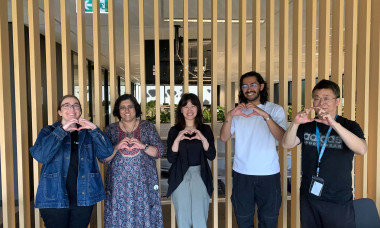Education Week accelerates blending of vocational skills training with school learning
High school has traditionally been seen as a place where students go for all-round, foundational learning, before they need to leave and choose a vocation, university pathway or employment.
However 2020’s ‘Education Week’ in NSW was evidence of a growing push to integrate vocational skills training in schools, so students leave equipped with skills they need for post-school life.
The NSW Government this year launched a brand new vocational high school at Seven Hills High School in Sydney’s west, which will integrate its own vocational education and training hub.
“I’m pleased to announce Seven Hills [High School] will be one of two high schools throughout the state to have a purpose-built facility that will allow them [students] to receive vocational education and training whilst they are still at high school,” NSW Premier Gladys Berejiklian said at the launch.
“Students want to have the option of going to university, going to a TAFE, going to a vocational education and training provider, or else going directly into the workforce; this purpose-built facility will allow students at Seven Hills to have that option,” she added.
Seven Hills High School will be among the first schools in NSW to provide dual Higher School Certificate (HSC) and vocational qualifications. Vocational qualifications on offer include community and health services, construction, electro-technology, plumbing, transport and logistics.
Berejiklian said the school’s location in Sydney’s West meant its students could capitalise on local major projects employment - including the coming construction of Sydney’s new ‘aerotropolis’ or Western Sydney Airport - that would require skilled tradespeople for a span of decades.
A similar school option in the same region is CathWest Innovation College, which provides both vocational education and training as well as traditional school learning to students in Years 10-12.
Berejiklian said students could use the new hub to get vocational skills training, earn credit for a qualification when they leave school, or access skills that would lead directly to employment.
Citing the current difficulties faced by students learning and graduating during COVID-19, she said it was important to forge new pathways and opportunities that created optimism for the future.
“It’s really important for us in Education Week to highlight the difficult circumstances in which we are learning compared to how some of us would have learned in the past,” she said.
The integration of vocational learning in schools is indicative of a rising community awareness of the value of a VET skills, as well as the strong link between VET skills and employment opportunities.
Download the Voice of VET: RTO Industry Australia 2021 Survey Report now for views on the present and future of Australian VET. Click here.






